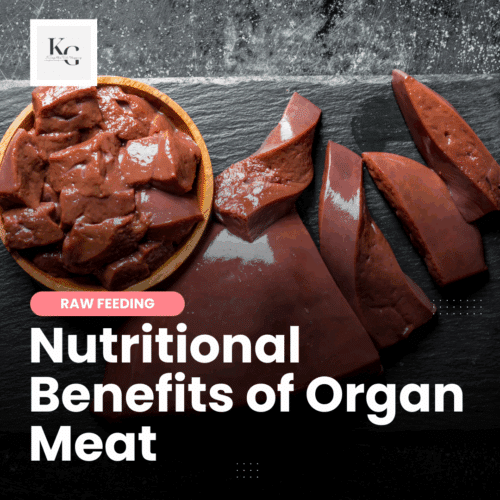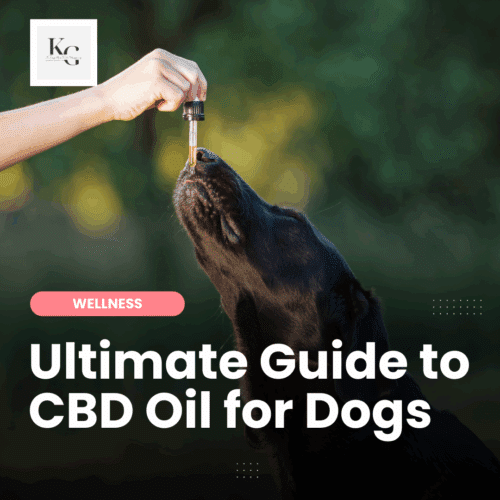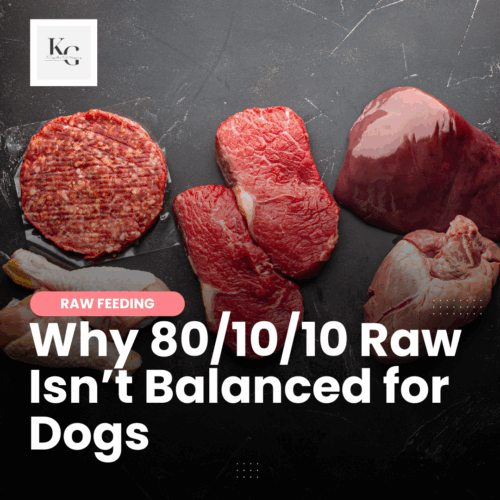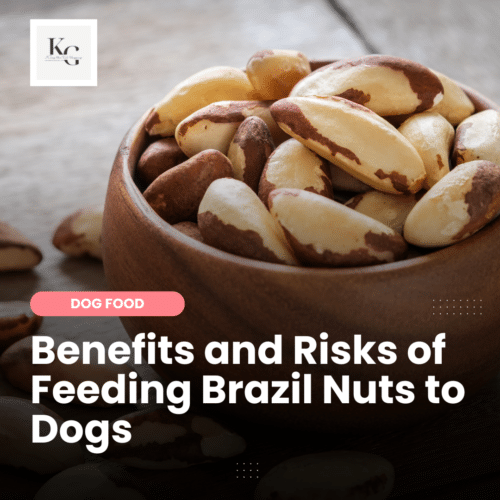Keep the Tail Wagging is supported by pet parents. I occasionally earn a commission (at no additional cost to you) when you click through an affiliate link to one of my favorite products. Thank you for your support. Read More
My dogs eat grass. I'm usually not concerned, but I am curious about the behavior because there are times when it's concerning. In this blog post, we will delve into the reasons why dogs eat grass, explore alternative options that provide similar benefits, and stop the behavior when it becomes concerning. You'll be interested in learning that eating grass isn't always because a dog wants to vomit.
Why Do Dogs Eat Grass?
There are various theories as to why dogs eat grass. Some suggest that dogs eat grass to soothe an upset stomach, aid in digestion, or fulfill a nutritional need. Others believe grass eating is a natural behavior inherited from their wild ancestors and our dogs enjoy the taste and texture. Regardless of the reason, occasional grass consumption is generally considered safe for dogs as long as the grass is free from pesticides and toxins.
I've noticed my dogs enjoy fresh grass that's young, green, and tender. I don't discourage the consumption, but I do pay attention in case the grass eating is a sign that I need to adjust their diet.
Alternatives to Eating Grass for Dogs
If you're concerned about your dog's consumption of grass, if your dog is more interested in eating grass than playing, there are adjustments you can make to their diet that will slow or stop this behavior. As stated, grass eating is a natural behavior for dogs, so it may not go away entirely, and that's okay. This list shares what I've learned that has stopped the obsessive consumption of grass I used to see in my dogs.
Benefits of Fiber
Fiber is essential for maintaining a healthy digestive system in dogs. It promotes solid stools, aids in nutrient absorption, and helps regulate blood sugar levels. Good sources of fiber for dogs include fruits, vegetables, and seeds. Adding fiber to your dog's diet can support gut health and provide digestive benefits similar to grass consumption.
A few natural sources of fiber I keep on hand for my dogs include:
- broccoli sprouts
- homemade vegetable blends
- pureed sweet potatoes
- pureed pumpkin
- chia seeds
- hemp seeds
Benefits of Probiotics
Probiotics are beneficial bacteria that support the balance of gut flora in dogs. They aid in digestion, strengthen the immune system, reduce allergies, and improve nutrient absorption. Probiotics can help maintain a healthy gut microbiome and alleviate digestive issues in dogs, like IBD, potentially reducing the urge to eat grass.
- Gussy's Gut – I add 1/3 tablespoon to each of my dog's evening meals five days weekly*
- Adored Beast Apothecary Gut Soothe
- Adored Beast Apothecary Fido's Flora
- Earth Buddy Pet Colostrum
- Real Mushroom's Daily Dawg
A bag of Gussy's Gut lasts more than two months with my three large dogs.
Benefits of Spirulina
Spirulina is a nutrient-rich blue-green algae rich in protein, vitamins, minerals, fiber, and antioxidants. It offers anti-inflammatory properties, supports the immune system, and promotes overall health in dogs. Both spirulina and grass contain chlorophyll, the green pigment responsible for photosynthesis in plants. Chlorophyll is known for its cleansing and detoxifying properties, supporting the body's natural detox processes.
Spirulina can be added to your dog's diet as a supplement to enhance nutrient intake and provide health benefits similar to grass. I generally add a 1/4 teaspoon to my dogs' meals.
Benefits of Chlorella
Chlorella is a freshwater algae known for its detoxifying properties and high nutrient content. Like spirulina (above) and grass, chlorella contains chlorophyll, amino acids, fiber, vitamins, and minerals that support detoxification, immune function, and cellular health in dogs. Adding chlorella to your dog's diet can help cleanse the body and provide essential nutrients. I generally add a 1/4 teaspoon to my dogs' meals.
Benefits of Wheatgrass
Wheatgrass is a young grass of the wheat plant that is packed with vitamins, minerals, fiber, chlorophyll, and enzymes. It offers antioxidant properties, supports detoxification, and aids in digestion. Wheatgrass can be juiced or blended into your dog's diet to provide a nutrient boost and offer similar benefits to grass consumption.
I like to add a small amount, less than a teaspoon, mixed with warm water or bone broth (to form a paste) to the edge of my dogs' dishes. If it's something they need, they'll lick it up. If one leaves it behind, one of my other dogs will eat it.
- Anthony's Organic Wheatgrass Powder
- EasyPeasy wheatgrass sprouting seeds (if you'd like to grow it yourself)
Recommended Dosages
This isn't a popular response, but the truth is that the recommended amount of any of the fresh foods listed above depends on the dog—it depends on their size, age, preferences, and health. I always start small and increase the amount I add to their meals until I see improvement—that becomes the recommended dose. This can be a pinch of broccoli sprouts or wheatgrass added to the bowl regularly, two heaping tablespoons of pureed pumpkin, or a teaspoon of ground hemp seeds.
Final Thoughts on Dogs Eating Grass
While grass eating is a common behavior in dogs, understanding the reasons behind it can help pet owners address potential underlying issues or provide suitable alternatives. Incorporating fiber, probiotics, spirulina, chlorella, and wheatgrass into your dog's diet can offer similar benefits to grass consumption while promoting digestive health, immune function, and overall well-being. It's important to keep your veterinarian in the loop in case the grass eating is a symptom of something more serious than a need for additional fiber in the diet.

















Yes, if we get a pile of new soil, the dogs will dig in for a bit. But regular dining on dirt can be a sign of a mineral deficiency. I suggest talking to your vet about what minerals the dogs are getting in the soil so that you can supplement them in their diet.
my gang don’t eat the grass as much as they eat dirt. This began last summer and it has terrified me. They were eating the grit that is between stones on the patio.. they dig holes but there is no pile of dirt on the side. I was giving them kelp and fish oil in their raw food diet but it didn’t stop the behavior. During this winter, I have got some spirulina and an all purpose supplement put out by Thorne. I’m hoping it doesn’t reoccur this summer. Have you ever dealt with dirt eaters?
Five of my dogs have died from cancers. Remaining two dogs are fed organic kale, broccoli, carrot, green apple and raw meat in food processor. My oldest (12-1/2 & 110 lbs) responded quickly from the diet. He’s very perky, hearing and eyesight improved, wants to walk, climbs stairs easier. Arthritic and itchy. They don’t eat grass anymore. An unbalanced raw diet lacking in organ meats and greens, may coerce cancer IMO. No kibble ever. Raw chicken and chop red meat are strong allergens. I’m getting my dogs off it. COOPs useless near me. Must purchase bulk raw, hypoallergenic foods. Where? Food prep is an arduous, daily affair. (I’m in Atlanta area).
I just lost my dog Kaylee to cancer. I didn’t know about spirulina. This product could have help her in the fight against her cancer. Like some of the other comments about the vegetables, Kaylee love eating green beans, peas, broccoli , carrot, sweet potatoes and cauliflower. I had a vet mention many years ago that green vegetables help the dog digestion.
Thanks for the warning. I also recently read that a dog passed away after eating a certain type of grass – here’s the article: http://www.newsiosity.com/articles/animals/dog-dies-one-hour-after-hiking-his-owner-veterinarian-gives-shocking-reason-why
Please be careful with the grass. I live in south Florida, (the debilitating summer humidity where the parasites multiply). Every chance they get, my boys cry to go out in order to devour the grass. They were diagnosed today with hookworm. It’s a nightmare to get rid of and now it’s in my yard, which means my soil& grass are contaminated. No more grass eating for them. At least not in their own backyard. So the battle begins…
I agree… They have given an instinct of self medication.
I had no idea that grass served as a natural dewormer. Learn something new about or dogs daily! Love it! My biggest worry was how intensely our dogs were eating grass – they wouldn’t even play, they’d just run outside and start grazing. I figured that it was due to something missing in their diet. They still eat grass now, but it’s not at the level that they did when I wrote this post.
Great point about the fertilizer. I have to remind my boyfriend not to spray the blackberry bushes; I prefer just cutting them back. More work, but safer.
Grass won’t hurt your dog. Just make sure that the grass that they’re eating doesn’t contain fertilizers or pesticides. (But do not let this to be their daily diet) Actually grass also serves as a good natural dewormer for them. 🙂
Perhaps if I mentioned her breed(s), it might make more sense, as I think that’s also a contributing factor. She looks like a Lab & Ridgeback cross – both “perpetually hungry” breeds. I’m sure there are other breeds in her but those 2 seem the most dominant given her looks, features, and character.
OMG I am laughing so hard just trying to picture your dog. Our dogs still have the grass guzzling phases, but nothing like your princess. Wow!
And I worry about disease too. Our dogs chase and kill field mice in the spring/summer. I think they may have all moved away, because of our dogs. I don’t want them to get worms so I’m glad that they know “drop it.” But if I don’t get that command in there in time, it’s gone. Uukk.
She is just trying to stuff her face! Now that the snow is covering the grass, she has to resort to other options. She tried to eat deer fur laying around a couple of days ago, as well as catching a field mouse yesterday which I managed to get her drop before it disappeared into her gullet. I don’t have a problem with her eating live prey but I am always mindful of disease especially in wild mice.
Mine get whatever veges we are having for dinner for their after dinner treat – snap peas, cabbage, broccoli, cauliflower, red peppers, spinach, kale, cucumber, zucchini, etc as well as carrots, lettuce and pumpkin on top of that. They are not fussy – they eat it all. I use THK base mixes on top of that. I highly doubt they are lacking in anything in their diet! They are just pigs. Funnily enough, a couple of years ago, my female wouldn’t eat leafy greens unless it was completely mixed into her food. Now she’ll eat it all as is.
But the carpet is so much more comfortable. I had this issue with Sydney and Zoey, my 2 butterballs. I started adding green beans to their food occasionally to make them feel more full after they ate without adding a ton of calories. I go with the frozen ones, because they have the least amount of sodium. Fresh is crazy expensive, but if I can get them on sale, I buy them. There are no salt canned green beans that I’ll buy in a pinch.
Go figure. I wonder what your girl is trying to do.
My dogs get lots of veges. They love it and will eat anything as is even leafy greens. However it DOES NOT stop or reduce their grass eating! My female eats grass like she’s starved. And no, it is not for any reason other than she thinks she’s been starved. I have to stop her because it always all comes back out the front end in a green/brown (depending on season) “wormy” looking pile along with her dinner of raw usually around 2am!. Always on the carpet no less; the hard floors are not good enough. My male is pretty good and eats grass in moderation. It doesn’t come back out the front end so I usually leave him be.
It wasn’t that I didn’t care, I didn’t know better. With the prey model of raw, you don’t feed fruits and veggies, and I experimented to see if it would make a difference, because so many people were telling me that my dogs didn’t need them. Now I know that they do and I’m glad that I tried it, because now when someone tells me that fruits and veggies are fillers, I can honestly say, not for my dogs. 🙂 There’s just so much conflicting information out there that it gets confusing and a bit overwhelming at times.
Yes, veg and fruit diet is essential for them. If pet owners don’t do this, they don’t care about their dog’s health and well-being.
In our case, nothing has stopped our guys from eating grass, not even adding stuff such as wheat grass into the food. Since it doesn’t make them sick and they seem to enjoy it, I stopped trying to prevent it.
You know, now that I think on it, I don’t think our dog has really eaten grass as often as he did when he ate a kibble/wet food diet. Since May 2014, he’s been on a BARF model diet that’s commercially available. He’s done extremely well on the diet, it’s even helped in my eliminating his separation anxiety! It, along with just about any other health issue he had, is completely well managed now with a much more natural diet. 🙂
None of my dogs have eaten grass since my first two. And I fed them Iams. So I’m willing to buy the diet argument.
Some of our foster dogs have eaten grass. I’m expected to feed them Science Diet, which will be sent home with them when they’re adopted. Perhaps I’ll work harder to add some veggies in as snacks and see if that affects the grass eating.